Food Package Labels - Truth or Hype?
- Viroqua Plastic Free
- Jan 17, 2024
- 4 min read

The Product Look-Up code (PLU) is the little (plastic!) sticker on the fresh produce you purchase. It tells you immediately if the item is organic or not. The PLU is typically a 4-digit number identifying the product and variety. Organic produce has a 5-digit number beginning with “9.” Genetically-modified produce also has a 5-digit number, but it begins with “8.”
However, once a food has been processed and packaged, it becomes more difficult to figure out how it was grown and prepared. Trendy buzz words like natural, non-toxic, pure and eco-friendly may entice shoppers to place products in their cart that are no better than their less sustainable counterparts.
What Do Third-Party Certifications Mean?
One way to wade through the hype is to look for third-party certifications that back up the claims made on the package.
Here are some common certification labels and what they mean. The Farm Aid, Vegan and Gluten Free Certification Organization websites contributed to these explanations.
USDA's National Organic program regulates labeling requirements for organic agricultural products. Food products labeled “organic” must contain at least 95% organic ingredients with no synthetic growth hormones, antibiotics, pesticides, biotechnology, synthetic ingredients or irradiation used in production or processing. USDA Organic is the only federally regulated organic label. Oregon Tilth Certified Organic and Quality Assurance International are accredited certifying agents of the USDA.
The Certified Naturally Grown label denotes the food was grown using the same standards as those for organic, but not on a farm actually certified by the National Organic Program of the USDA. This is an alternate, non-governmental certification system where other farmers act as inspectors in a program administered by this non-profit organization.
Animal Welfare Approved standards cover the way its participating farms raise their animals. AWA states that the basic premise of their standards is that animals must be able to behave naturally and be in a state of physical and psychological well-being. They only certify family farms (charging no fees to participating farmers) and state that animals must be raised on pasture or range.
The American Humane Certified program was created by the American Humane Association in 2000 to ensure that animals raised for dairy, poultry, beef, veal, goat, swine, turkey and bison products are raised in a humane manner. These guidelines ensure that livestock have access to clean and sufficient food and water as well as a safe, healthy living environment and that staff and managers are thoroughly trained to care for animals in a humane manner.
USDA has a grass fed standard for ruminant animals like cows and goats which states that these animals must be fed only grass and forage during the growing season. The American Grassfed Association is one organization that certifies beef, bison, dairy, lamb and goat that is fed only on pasture, in addition to being raised without antibiotics, synthetic hormones, confinement and with standards for high animal welfare.
The requirements that must be met before a product can carry the Certified Vegan logo are quite stringent. According to Vegan. org, they “must not contain ingredients of meat, fish, fowl, animal by-products (including silk or dyes from insects), eggs or egg products, milk or milk products, honey or honey bee products, or be clarified or finished with any animal products.” In addition, there must be no animal testing, no animal-derived GMOs and manufacturers must provide verification that no animal products were used in the manufacturing of ingredients.
Fair trade standards are enforced by the Fairtrade Labeling Organizations International (FLO) (in the U.S. by Fair Trade USA). Fair trade products must be produced in accordance with the following guidelines: Workers must receive fair wages, have safe and equitable working conditions and the right to join trade unions; child or forced labor is completely prohibited. Crops must also be grown, produced and processed in a manner that supports social, economic and environmental development.
The Non-GMO Project is a non-profit organization that provides the only third-party labeling program in North America for products grown without using genetic engineering. They verify that from seed to shelf, products are produced according to their rigorous best practices for GMO avoidance.
Gluten in grain products is a growing concern and has its own certification program. Products that are labeled with the Gluten-Free Certification Organization symbol are considered to be safe for those who are eating gluten-free. The GFCO certification process involves ingredient analysis, plant audits, frequent testing, off-the-shelf product testing, and verifying the gluten amounts in the samples.
What Do Other Labels Mean?
Other labels are not certified or tested by a third-party. They include “Hormone Free,” “RBGH-free,” “Raised without Antibiotics,” “Non-GMO” and “GE-Free” (genetically engineered). These labels rely on the farmers and processors to comply with each set of standards. There are a number of different labels making these claims and the standards for each may vary.
Certain other claims are even harder to interpret. There is no official definition for “all natural.” Each company is able to establish their own standards. “Free range” simply requires that animals do not live in cages and spend part of their time outdoors. It does not specify how much time is spent outdoors so the label has the potential to be very misleading.
Being aware of which claims are backed by third-party certification and which are not can simplify your grocery shopping experience. Plus, it may be worth a visit to a company’s website to learn in more detail what their claims mean.
Sources: farmaid.org/food-labels-explained

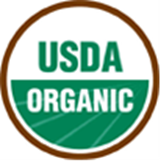
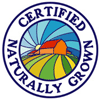
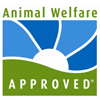
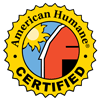
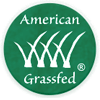

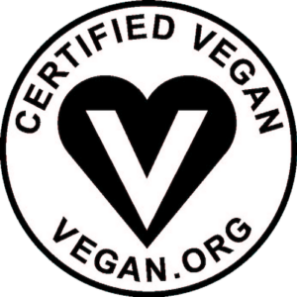
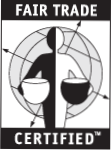





Comments